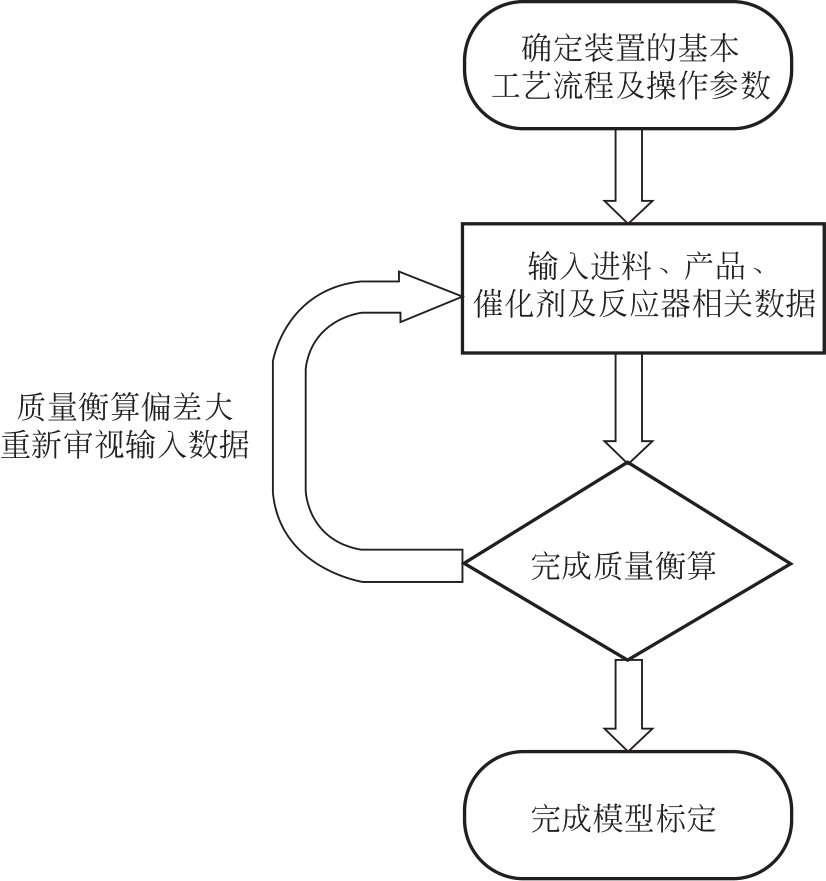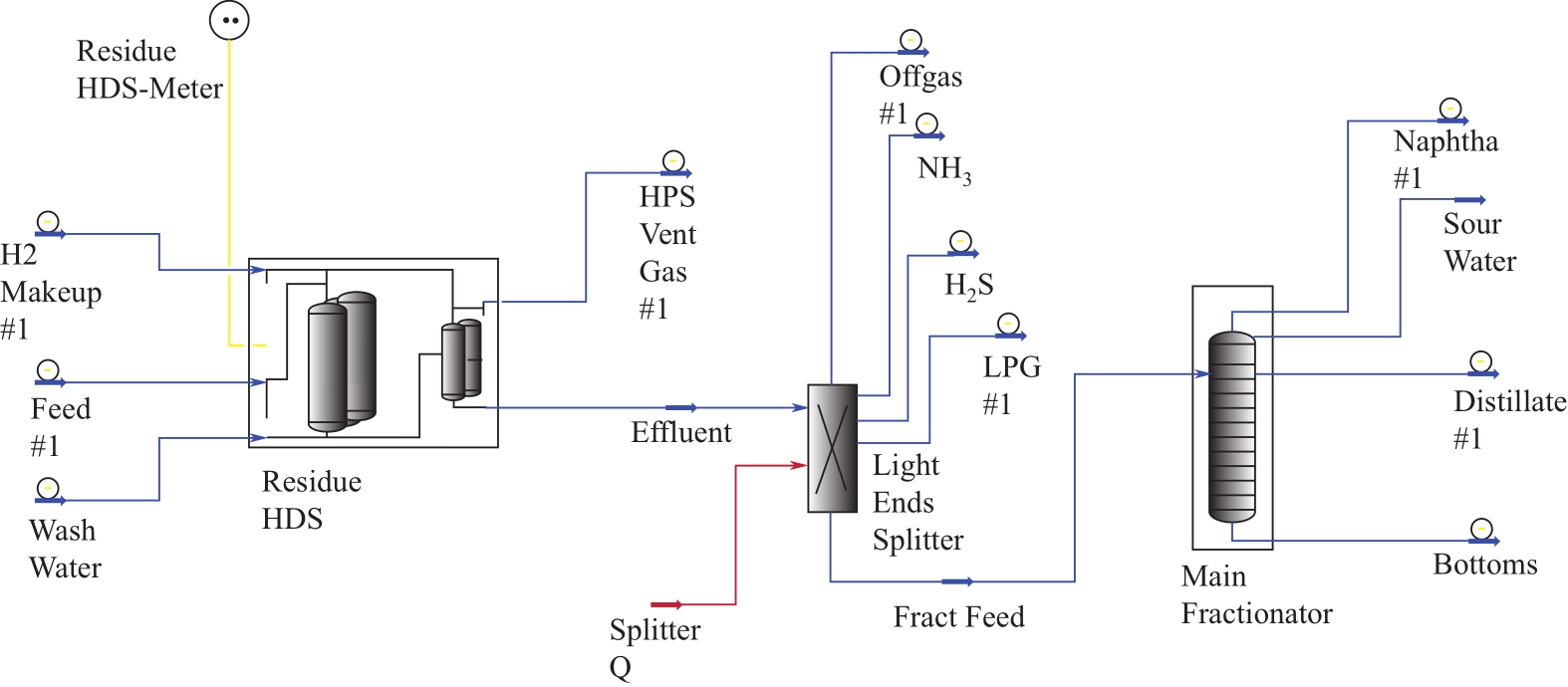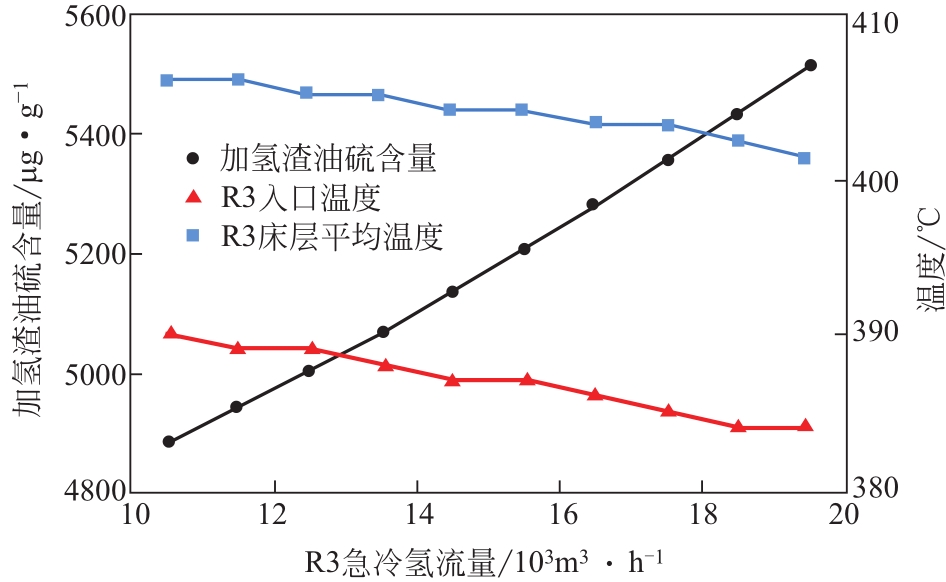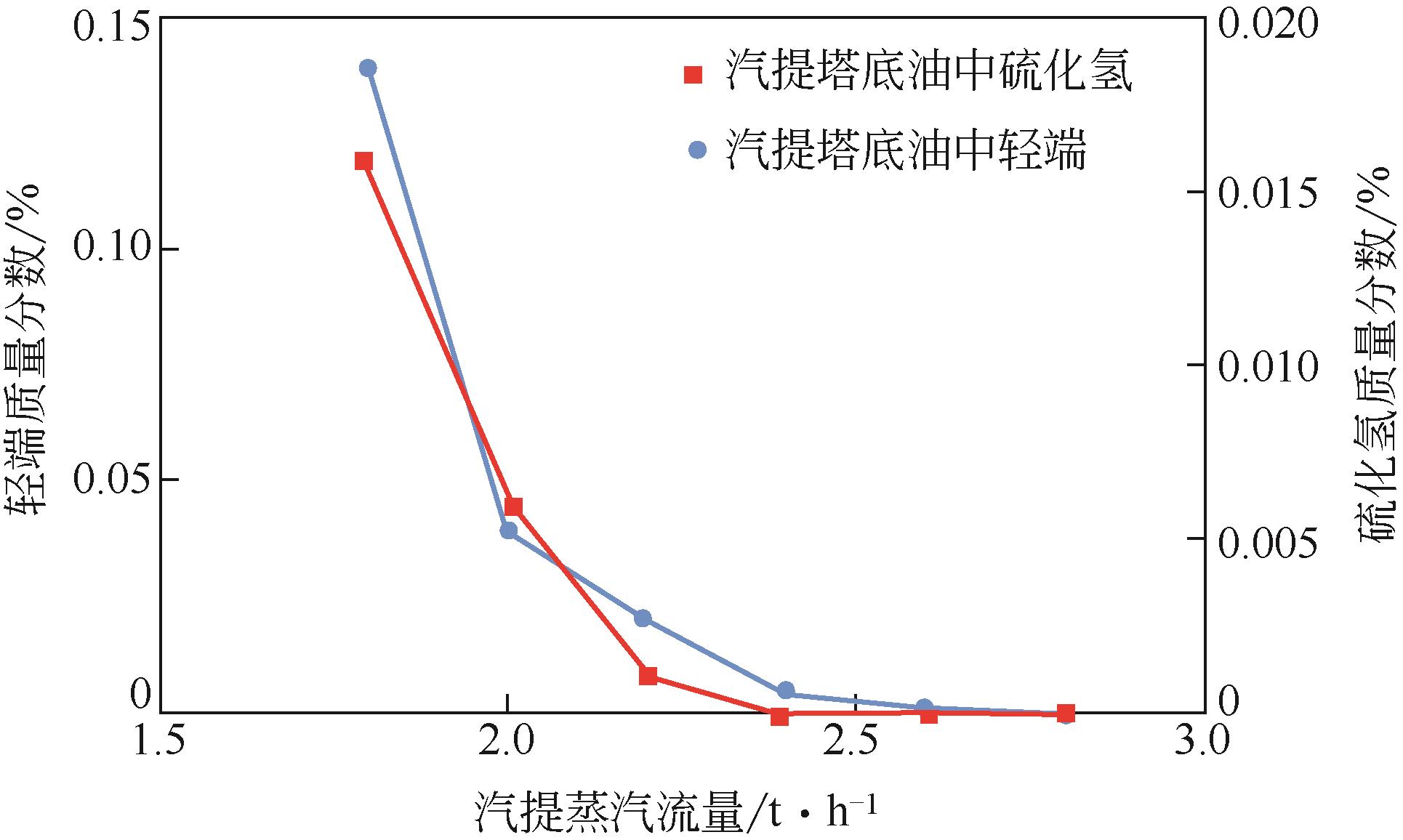| 1 |
曹湘洪. 石油化工流程模拟技术进展及应用[M]. 北京: 中国石化出版社, 2010.
|
|
CAO Xianghong. Development and applications of process flow simulation in petrochemical[M]. Beijing: China Petrochemical Press, 2010.
|
| 2 |
罗凡, 陈夕松, 梅彬, 等. 基于Petro-SIM的常减压流程模拟和参数优化[J]. 炼油与化工, 2017, 28(2): 53-56.
|
|
LUO Fan, CHEN Xisong, MEI Bin, et al. Process simulation and parameter optimization of atmospheric & vacuum distillation unit based on Petro-SIM[J]. Refining and Chemical Industry, 2017, 28(2): 53-56.
|
| 3 |
孟凡辉, 纪传佳, 杨纪. 惠州石化有限公司连续重整装置工艺流程模拟与优化[J]. 化工进展, 2017, 36(7): 2724-2729.
|
|
MENG Fanhui, JI Chuanjia, YANG Ji. Process simulation and optimization for CNOOC Huizhou Company’s continuous reforming unit[J]. Chemical Industry and Engineering Progress, 2017, 36(7): 2724-2729.
|
| 4 |
李大东, 聂红, 孙丽丽. 加氢处理工艺与工程[M]. 2版. 北京: 中国石化出版社, 2016.
|
|
LI Dadong, NIE Hong, SUN Lili. Process and engineering of hydroprocessing[M]. 2nd ed. Beijing: China Petrochemical Press, 2016.
|
| 5 |
赵元生, 赵愉生, 夏恩冬, 等. 上流式反应器用于劣质渣油加氢处理的初步探索[J]. 石油化工, 2016, 45(11): 1363-1368.
|
|
ZHAO Yuansheng, ZHAO Yusheng, XIA Endong, et al. Preliminary study on hydrotreating of inferior residual oil in upflow reactor[J]. Petrochemical Technology, 2016, 45(11): 1363-1368.
|
| 6 |
王晨, 杨杰, 李保良. Petro-SIM模拟软件在中压加氢裂化流程模拟中的应用[J]. 炼油技术与工程, 2018, 48(5): 42-46.
|
|
WANG Chen, YANG Jie, LI Baoliang. Application of Pertro-SIM in simulation of middle-pressure hydrocracking unit(MHCU)[J]. Petroleum Refinery Engineering, 2018, 48(5): 42-46.
|
| 7 |
刘新月, 王磊. 渣油加氢装置流程模拟及优化[J]. 石化技术, 2019, 26(9): 126-127.
|
|
LIU Xinyue, WANG Lei. Process simulation and optimization for residual hydrogenation plant[J]. Petrochemical Industry Technology, 2019, 26(9): 126-127.
|
| 8 |
范晓, 常璐璐, 王健红. 实组分切割应用于渣油加氢全流程工艺模拟的研究[J]. 北京化工大学学报(自然科学版), 2013, 40(3): 32-37.
|
|
FAN Xiao, CHANG Lulu, WANG Jianhong. Flow simulation of residue hydrodesulfurization based on a real-components cutting method[J]. Journal of Beijing University of Chemical Technology (Natural Science Edition), 2013, 40(3): 32-37.
|
| 9 |
甘彬彬, 胡瑞, 公丕江. 渣油加氢脱硫装置分馏塔优化模拟[J]. 中外能源, 2010, 15(11): 75-78.
|
|
GAN Binbin, HU Rui, GONG Pijiang. Optimization modeling for fractionators of residue hydrodesulfurizing units[J]. Sino-Global Energy, 2010, 15(11): 75-78.
|
| 10 |
魏跃峰, 索寒生, 陈郑, 等. 炼化一体计划优化模型建设及技术展望[J]. 计算机与应用化学, 2020, 37(3): 227-233.
|
|
WEI Yuefeng, SUO Hansheng, CHEN Zheng, et al. The construction and technology outlook of refining and chemical enterprises planning optimization model[J]. Computers and Applied Chemistry, 2020, 37(3): 227-233.
|
| 11 |
李睿, 胡翔. 化工流程模拟技术研究进展[J]. 化工进展, 2014, 33(S1): 27-31.
|
|
LI Rui, HU Xiang. Research progress of chemical process simulation technology[J]. Chemical Industry and Engineering Progress, 2014, 33(S1): 27-31.
|
| 12 |
陈明杰, 赵毅. 人工智能技术在装置实时优化控制中的应用研究[J]. 计算机与应用化学, 2020, 37(3): 257-263.
|
|
CHEN Mingjie, ZHAO Yi. Application of artificial intelligence technology in real-time optimization of petrochemical plant[J]. Computers and Applied Chemistry, 2020, 37(3): 257-263.
|
| 13 |
MEYERS Robert A. Handbook of petroleum refining processes[M]. 4th ed. Harbin: Harbin Institute of Technology Press, 2016.
|
| 14 |
董凯, 戴立顺, 贾燕子, 等. 仪长渣油加氢处理反应规律的研究Ⅱ.新型催化剂及工艺条件的影响[J]. 石油炼制与化工, 2015, 46(2): 7-11.
|
|
DONG Kai, DAI Lishun, JIA Yanzi, et al. Study on hydrotreating reactivity of Yichang residue Ⅱ.Catalyst and operation conditions[J]. Petroleum Processing and Petrochemicals, 2015, 46(2): 7-11.
|
 ), ZHAO Yuansheng(
), ZHAO Yuansheng( ), WANG Yuan, HE Shengbao
), WANG Yuan, HE Shengbao





